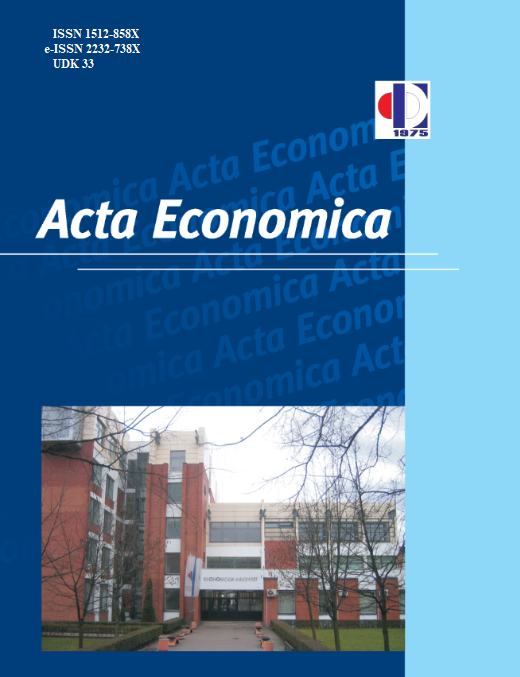THE IMPACT OF FOREIGN DIRECT INVESTMENT ON EMPLOYMENT IN TOURISM IN BOSNIA AND HERZEGOVINA
DOI:
https://doi.org/10.7251/ACE1931021MAbstract
The global tourism market is accompanied by the constant
changes in the market share of individual countries,
the preferences of tourists and ways to satisfy
their needs. In 2017, Europe, for example, dominated
the tourism market with 51% of market share. However,
the increase in Asia-Pacific participation compared to
2016 is as high as 24%, which indicates that the share of
transnational companies in the region is increasing, not
only in revenues, but also in tourism investments. Part
of the investment is also directed to Bosnia and Herzegovina,
which emphasizes inflows from Arab countries.
Regardless of the type, investments in tourism are of
particular importance to developing countries, because
in addition to economic effects, they contribute to technology
transfer, management experience and they also
strengthen the cooperation between the state and the investor.
The subject of this paper is foreign direct investment
(FDI) in tourism in Bosnia and Herzegovina. The
aim of this paper is to examine the impact of foreign
direct investment on employment in the tourism sector.
Using the correlation regression analysis, the impact of
foreign direct investments on the number of jobs in the
accommodation and food and beverage industries was
examined. The paper shows that there is a weak positive
impact of FDI on the increase in the number of employees
in the accommodation and food and beverage
industries.

